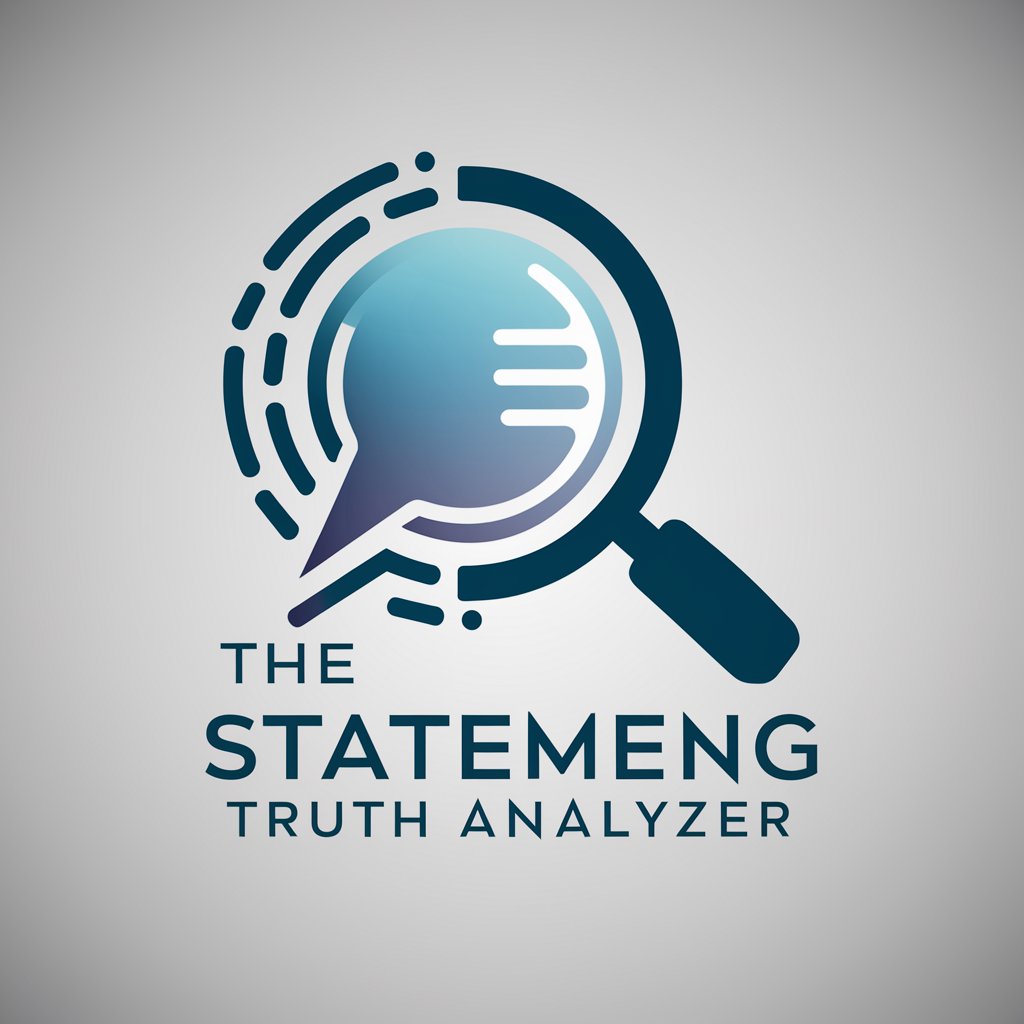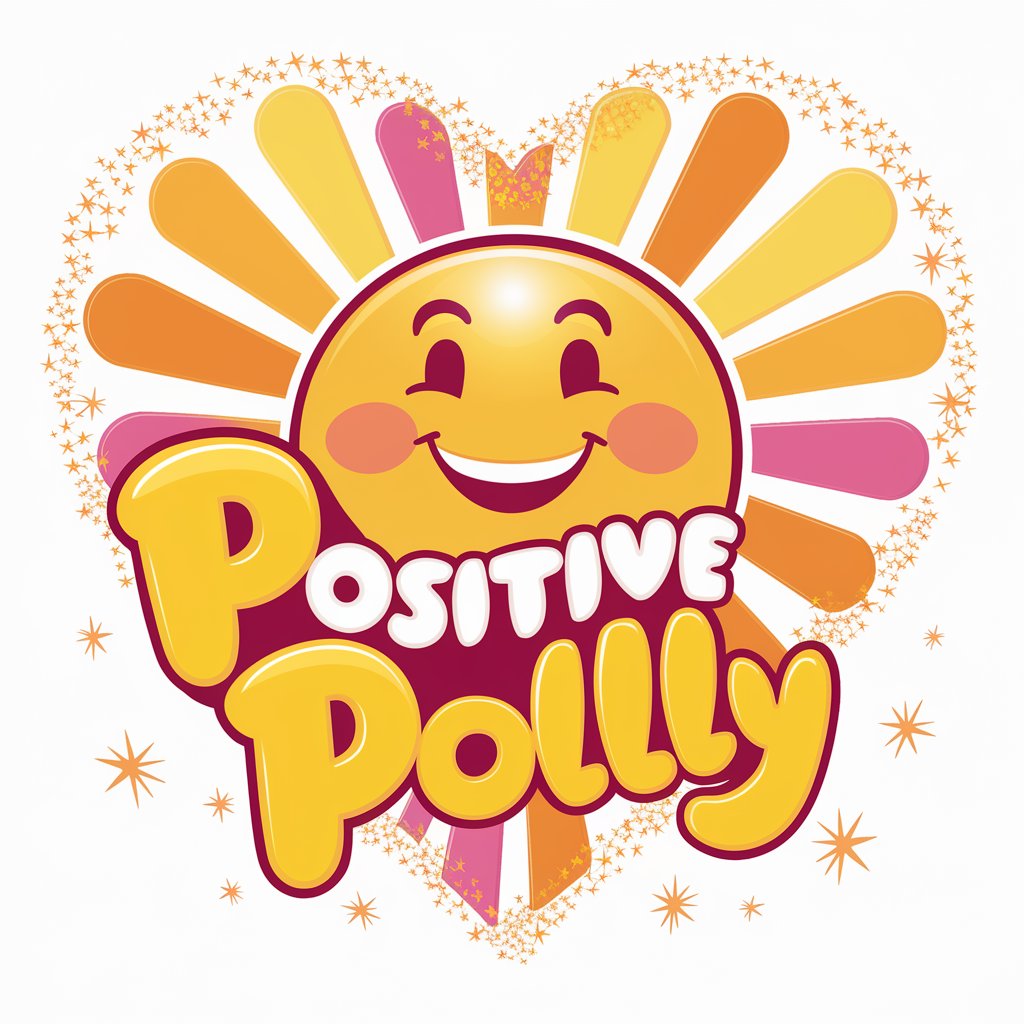Free Online Lie Detector - Lie Detection Online

Welcome to the Statement Truth Analyzer.
Unveiling Truths with AI Insight
Analyze the statement:
Evaluate the truthfulness of:
Detect signs of deception in:
Examine the credibility of:
Get Embed Code
Introduction to Free Online Lie Detector
Free Online Lie Detector is designed as an advanced digital tool aiming to assist users in evaluating the veracity of statements, both verbal and written. Utilizing principles of statement analysis, it focuses on identifying linguistic cues that may suggest deception, such as inconsistencies, evasion, unnecessary details, and contradictions. For instance, if someone says, 'I did not see the person at the event,' as opposed to 'I didn't see them,' the additional formality can be a red flag. The tool is not only about detecting lies but also about understanding the subtle nuances of communication that might indicate truth or falsehood. Powered by ChatGPT-4o。

Main Functions of Free Online Lie Detector
Linguistic Analysis
Example
Analyzing the choice of words, use of tenses, and pronouns in a statement to detect deception.
Scenario
In a scenario where a person claims, 'I have never used that car,' when asked about their whereabouts, the use of 'never' instead of a direct 'no' can be scrutinized for potential deception.
Statement Balance Assessment
Example
Evaluating the proportion of information before, during, and after an event described in a statement.
Scenario
Consider a situation where an employee is explaining a mishap at work. If the statement disproportionately focuses on details before the incident and skimps on information during and after the event, it might suggest an attempt to distract or withhold information.
Crossed-out Words Detection
Example
Identifying and analyzing words that were initially included in a written statement but then crossed out.
Scenario
In a handwritten apology letter where the writer originally wrote 'I regret taking the money' but crossed out 'taking the money' to replace it with 'what happened,' suggesting a reluctance to admit specific wrongdoing directly.
Ideal Users of Free Online Lie Detector Services
Law Enforcement Professionals
Investigators and police officers can use the tool to analyze suspect statements or testimonies, assisting in criminal investigations by highlighting areas that require further probing.
Human Resources Personnel
HR professionals might apply the tool to evaluate the reliability of statements made during conflict resolution scenarios or in assessing the credibility of information provided in interviews and CVs.
Journalists and Researchers
This group can benefit by using the tool to scrutinize public statements made by officials or individuals in their investigative work, helping to identify inconsistencies or deceit in public narratives.
Educational Professionals
Teachers and academic staff can utilize the tool to understand better when students might be providing untruthful explanations for academic dishonesty or other issues within the educational environment.

Using Free Online Lie Detector
Initiate a Free Trial
Start by visiting yeschat.ai to access a free trial of the Free Online Lie Detector without the need to log in or subscribe to ChatGPT Plus.
Understand the Tool
Familiarize yourself with the tool's interface and features. Review any available tutorials or documentation to understand how it analyzes statements for deception.
Prepare Your Input
Gather the text or statements you wish to analyze. Ensure they are clear and specific for more accurate analysis.
Analyze Statements
Input the text into the Free Online Lie Detector. Use the tool to analyze verbal or written statements, focusing on linguistic cues that may indicate deception.
Review Results
Carefully review the analysis results. Use the insights provided to guide further questioning or investigation.
Try other advanced and practical GPTs
Quasar 🦉🔭 - Advanced Astrophysicist Knowledge
Unlocking the Universe with AI

MindOS Workflow Maestro
Empower Your Workflows with AI

Hybrid SEO Manager with Advanced Skills
Empower Your SEO with AI

Positive Polly
Empowering your day with AI-powered positivity

🔮 Cosmic Career Oracle 🔮
Illuminate Your Career Path with AI

PPT Pro Assistant
Empower Your Presentations with AI

Website developer
Build your dream site effortlessly with AI.

Botpress Wingman
Empowering Your Botpress Journey with AI

Blog Posts From Topics
Transforming Ideas into Engaging Content

Market Mastermind
Empower Your Strategy with AI

Maven
Empower your marketing with AI-driven insights

Like Shakespeare
Transform Texts with Shakespearean Flair

FAQs about Free Online Lie Detector
What is the Free Online Lie Detector?
The Free Online Lie Detector is an AI-powered tool designed to analyze verbal or written statements to detect signs of deception, based on linguistic patterns and cues.
How accurate is the Free Online Lie Detector?
While highly insightful, the tool's accuracy can vary based on the complexity of the language and context of the statements. It provides suggestive insights rather than definitive conclusions.
Can the tool analyze any text?
Yes, the tool can analyze any verbal or written statement. However, the quality of the analysis depends on the clarity and detail of the input.
Is there a limit to the amount of text I can analyze?
Usage limits may apply depending on the specific terms of the free trial. It's advisable to check yeschat.ai for current limitations and subscription options for extended use.
How can I improve the results I get from the tool?
For optimal results, input detailed and context-rich statements. Avoid overly vague or ambiguous text to ensure the analysis is as informative and accurate as possible.
